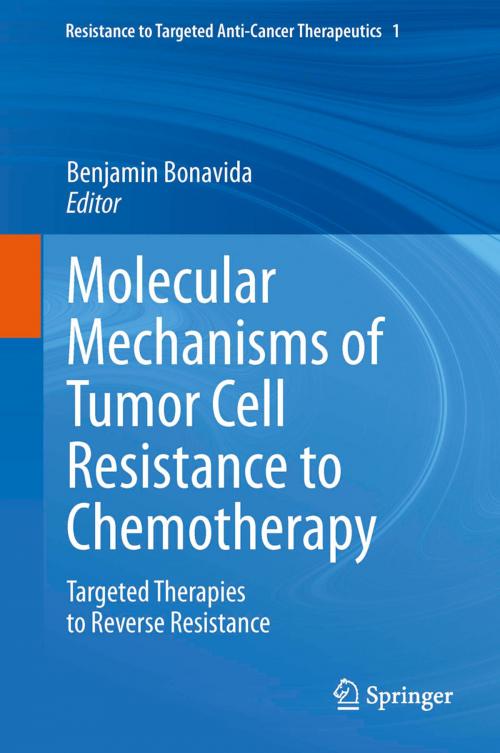Molecular Mechanisms of Tumor Cell Resistance to Chemotherapy
Targeted Therapies to Reverse Resistance
Nonfiction, Science & Nature, Science, Biological Sciences, Cytology, Health & Well Being, Medical, Specialties, Oncology| Author: | ISBN: | 9781461470700 | |
| Publisher: | Springer New York | Publication: | July 4, 2013 |
| Imprint: | Springer | Language: | English |
| Author: | |
| ISBN: | 9781461470700 |
| Publisher: | Springer New York |
| Publication: | July 4, 2013 |
| Imprint: | Springer |
| Language: | English |
This volume gives the latest developments in on the mechanisms of cancer cell resistance to apoptotic stimuli, which eventually result in cancer progression and metastasis. One of the main challenges in cancer research is to develop new therapies to combat resistant tumors. The development of new effective therapies will be dependent on delineating the biochemical, molecular, and genetic mechanisms that regulate tumor cell resistance to cytotoxic drug-induced apoptosis. These mechanisms should reveal gene products that directly regulate resistance in order to develop new drugs that target these resistance factors and such new drugs may either be selective or common to various cancers. If successful, new drugs may not be toxic and may be used effectively in combination with subtoxic conventional drugs to achieve synergy and to reverse tumor cell resistance. The research developments presented in this book can be translated to produce better clinical responses to resistant tumors.
This volume gives the latest developments in on the mechanisms of cancer cell resistance to apoptotic stimuli, which eventually result in cancer progression and metastasis. One of the main challenges in cancer research is to develop new therapies to combat resistant tumors. The development of new effective therapies will be dependent on delineating the biochemical, molecular, and genetic mechanisms that regulate tumor cell resistance to cytotoxic drug-induced apoptosis. These mechanisms should reveal gene products that directly regulate resistance in order to develop new drugs that target these resistance factors and such new drugs may either be selective or common to various cancers. If successful, new drugs may not be toxic and may be used effectively in combination with subtoxic conventional drugs to achieve synergy and to reverse tumor cell resistance. The research developments presented in this book can be translated to produce better clinical responses to resistant tumors.















